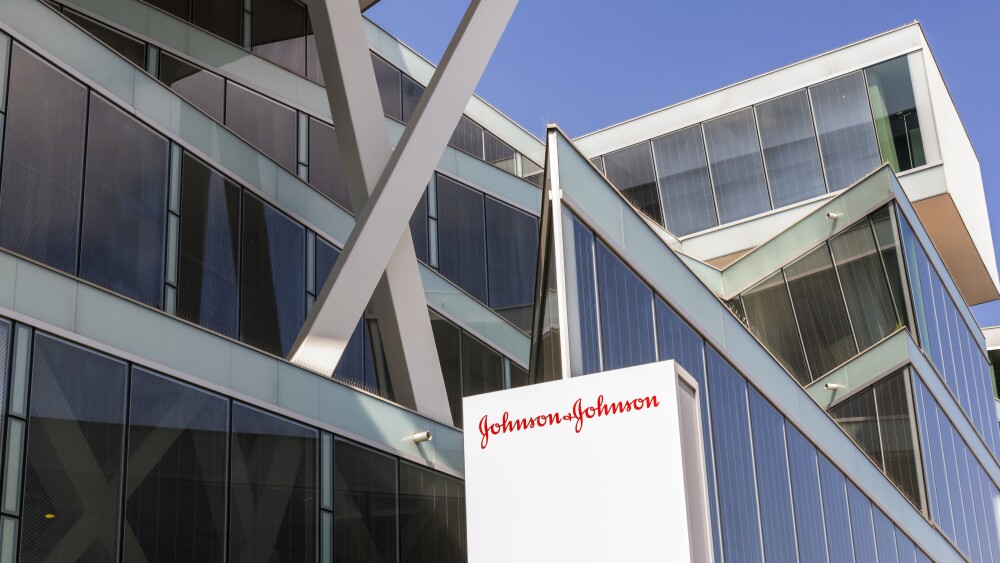Nipocalimab, approved as Imaavy for generalized myasthenia gravis earlier this year, failed to show significantly added benefit when used with an anti-TNFα therapy in patients with rheumatoid arthritis.
Johnson & Johnson’s FcRn blocker nipocalimab showed no significant therapeutic benefit in a mid-stage rheumatoid arthritis trial, pushing the pharma to discontinue its development.
J&J was testing nipocalimab plus an anti-TNFα therapy in the Phase IIa DAISY trial, enrolling more than 100 patients with moderate to severe and active disease who had already had prior treatment. The company did not provide specific data in its announcement on Thursday, only noting that DAISY “did not show sufficient evidence that the combination therapy provided significant added benefit over anti-TNFα therapy alone.”
Nipocalimab is a human IgG1 monoclonal antibody that targets the neonatal Fc receptor, in turn lowering levels of IgG. The biologic won the FDA’s approval in April for the treatment of generalized myasthenia gravis, carrying the brand name Imaavy. Aside from rheumatoid arthritis, J&J is continuing to test nipocalimab in other immunology indications, including Sjogren’s disease and systemic lupus erythematosus.
“We remain confident in the nipocalimab product having $5B+ potential,” J&J said in its announcement on Thursday.
Even with nipocalimab’s retreat from arthritis, however, J&J continues to chip away at the disease. In July, the pharma filed a supplemental submission to the FDA, seeking to add data to the label of its therapeutic antibody Tremfya, showing that it helps prevent the progression of structural damage in patients with active psoriatic arthritis. Tremfya, which targets IL-23, was approved for this disease in 2020.
Thursday’s mid-stage stumble marks a rare miss for J&J. The pharma also suffered a late-stage flop in March for its kappa opioid receptor blocker aticaprant. Results showed “insufficient efficacy” when it was used as a treatment for patients with major depressive disorder.
Otherwise, 2025 has been a good clinical year so far for J&J. The same month as its depression defeat, J&J reported that a combination regimen based on Rybrevant bested AstraZeneca’s Tagrisso in a late-stage trial of non-small cell lung cancer, leading to significantly better overall survival. Also in March 2025, J&J’s experimental IL-23 receptor blocker icotrokinra outperformed placebo and Bristol Myers Squibb’s Sotyktu in a Phase III plaque psoriasis study.
In June, J&J’s CAR T therapy JNJ-4496 achieved a 100% objective response rate in a Phase Ib trial of patients with large B cell lymphoma, with complete response rate reaching 80%.






